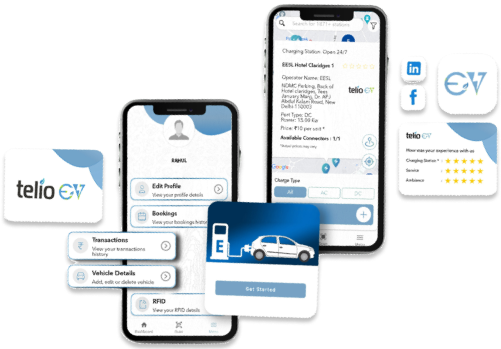Social Network Trending Updates on Nearby Charging Station
Social Network Trending Updates on Nearby Charging Station
Blog Article
Enhancing Electric Vehicle Charging with Advanced Management Software

The quick adoption of electric vehicles (EVs) has necessitated the development of efficient and user-friendly charging solutions. Central to this evolution are Electric Vehicle Charging Management Software (EV CMS) and EV Charging Apps, which streamline the charging procedure for both operators and users.
Comprehending EV Charging Management Software
EV Charging Management Software acts as a thorough platform that allows Charge Point Operators (CPOs) and other stakeholders to monitor, manage, and optimize EV charging stations. Key functionalities include real-time monitoring of charging stations, user authentication, payment processing, and energy management. By integrating these functions, the software makes sure effective operation and enhances the user experience.
Key Features of EV Charging Management Software
1. Real-Time Monitoring and Control: Operators can oversee the status of charging stations, track energy intake, and address concerns immediately.
2. User Authentication and Access Control: The software manages user access, ensuring that just authorized individuals can use the charging facilities.
3. Payment Processing: It facilitates smooth transactions, supporting various payment approaches to accommodate diverse user choices.
4. Energy Management: By optimizing energy circulation, the software decreases functional expenses and supports grid stability.
5. Reporting and Analytics: Comprehensive data analysis help in notified decision-making and strategic preparation for network expansion.
The Role of EV Charging Apps
EV Charging Apps are designed to supply EV owners with practical access to charging facilities. These applications provide features such as finding close-by charging stations, real-time availability updates, navigation support, and remote monitoring of charging sessions. By boosting ease of access and user engagement, these apps play a crucial function in promoting the adoption of electric vehicles.
Integration with Open Charge Point Interface (OCPI)
The Open Charge Point Interface (OCPI) is a standardized procedure that facilitates interoperability in between different EV charging networks. Combination with OCPI allows for smooth roaming, enabling users to gain access to multiple charging networks with a single account. This interoperability boosts user convenience and broadens the accessibility of charging facilities.
Advantages of Implementing Advanced Charging Solutions
- Enhanced User Experience: User-friendly interfaces and reliable services increase client satisfaction and commitment.
- Operational Efficiency: Automation and real-time tracking decrease manual intervention, decreasing operational expenses.
- Scalability: Advanced software solutions support the growth of charging networks to satisfy growing need.
- Revenue Generation: Flexible pricing models and efficient payment processing open new earnings streams for operators.
Conclusion
The integration of EV Charging Management EV Charging Management Software Software and user-centric EV Charging Apps is critical in advancing the electric vehicle community. These innovations not just improve operations for service providers however likewise significantly improve the charging experience for users. As the EV market continues to grow, the adoption of such innovative solutions will be instrumental in satisfying the increasing need for efficient and accessible charging facilities. Report this page